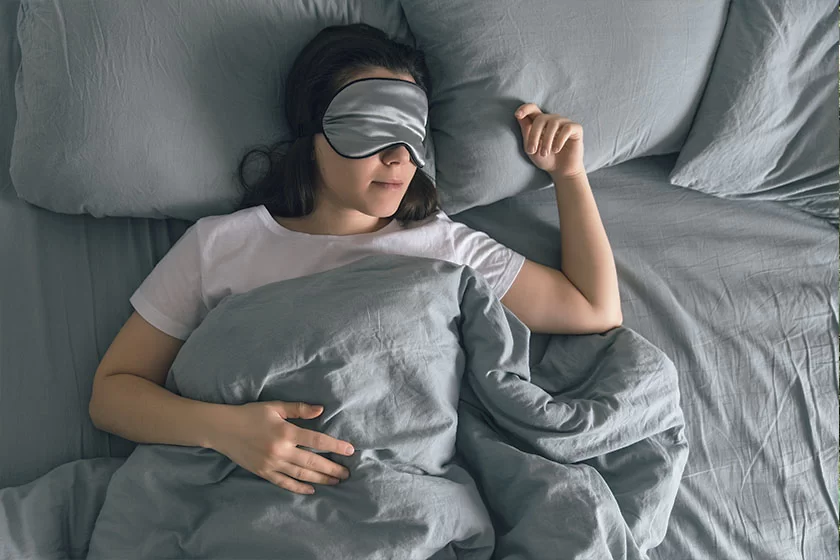In our fast-paced, always-on world, the quest for a peaceful night’s sleep seems more like a relentless pursuit than a natural nightly occurrence. For many Americans, especially those between the ages of 25 and 45, sleep has become an elusive commodity. This article aims to demystify sleep, offering practical, evidence-based tips to help you embrace the night and improve your sleep quality. Let’s dive into the visceral reality of sleep and how you can unlock its mysteries for a more restful night.


Understanding Sleep
Before we explore how to enhance sleep’s quality, it’s crucial to grasp what sleep is. Sleep’s is not merely a passive state of inactivity but a complex, dynamic process crucial for our physical health, emotional well-being, and cognitive function. It’s during sleep that our bodies repair themselves, our brains consolidate memories, and our energy reserves are replenished.


The Impact of Poor Sleep
The ramifications of inadequate sleep’s extend beyond mere tiredness. Chronic sleep’s deprivation has been linked to an array of health issues, including heart disease, diabetes, obesity, and depression. It can impair cognitive functions, such as attention, concentration, and decision-making, affecting every aspect of your life.
Tips for a Restful Night
Now, let’s focus on actionable tips to improve your sleep’s quality. Remember, the goal is not just to increase the quantity of sleep’s but to enhance its quality.


- Establish a Sleep Schedule: Stick to a consistent sleep’s schedule, even on weekends. This helps regulate your body’s internal clock and can help you fall asleep and wake up more easily.
- Create a Bedtime Ritual: Engage in relaxing activities before bed, such as reading, taking a warm bath, or practicing meditation. These activities can help signal to your body that it’s time to wind down.
- Optimize Your Sleep’s Environment: Make sure your bedroom is conducive to sleep’s. This means keeping it cool, quiet, and dark. Consider using blackout curtains, earplugs, or a white noise machine if necessary.
- Watch Your Intake: Avoid large meals, caffeine, and alcohol before bedtime. These can disrupt your sleep cycle and impact the quality of your sleep’s.
- Limit Screen Time: The blue light emitted by phones, tablets, and computers can interfere with your ability to fall asleep. Try to avoid these devices at least an hour before bedtime.
- Exercise Regularly: Regular physical activity can help you fall asleep faster and enjoy deeper sleep’s. However, avoid exercising too close to bedtime, as it might keep you awake.
- Manage Stress: Stress and anxiety can wreak havoc on your sleep’s. Techniques such as deep breathing, yoga, and journaling can help manage stress levels.
One List to Rule Them All: Your Sleep Checklist


- Establish a consistent sleep’s schedule.
- Create a relaxing bedtime ritual.
- Optimize your bedroom environment.
- Be mindful of your intake before bed.
- Limit exposure to screens before bedtime.
- Engage in regular physical activity.
- Practice stress management techniques.
Embracing the Night
Incorporating these tips into your nightly routine can significantly improve your sleep’s quality. Remember, change doesn’t happen overnight. Be patient and consistent with these practices, and overtime, you’ll unlock the mysteries of sleep, making restful nights more than just a dream.
Beyond the Basics: Understanding Sleep Cycles


To truly master your sleep, it’s beneficial to understand the stages of sleep’s your body cycles through each night. Sleep’s is divided into REM (Rapid Eye Movement) and non-REM stages, each playing a critical role in our health and well-being. Non-REM sleep’s consists of three phases, transitioning from light sleep’s to deep, restorative sleep’s. REM sleep, on the other hand, is where dreaming occurs, and it plays a key role in memory and learning.
The Power of Napping
While nighttime sleep’s is crucial, don’t underestimate the power of napping. Short naps of 20-30 minutes can improve mood, alertness, and performance. However, avoid long or late-day naps, as they can interfere with your nighttime sleep.
Sleep Disorders: When to Seek Help


For some, sleep issues may persist despite best efforts. Conditions like insomnia, sleep’s apnea, and restless leg syndrome can significantly impact your sleep’s quality. If you suspect you have a sleep’s disorder, consulting a healthcare professional is crucial. Early diagnosis and treatment can make a significant difference.
The Role of Technology in Sleep
In our digital age, technology can both hinder and help sleep’s. While it’s advisable to limit screen time before bed, technology can also aid sleep. Apps that track sleep’s patterns, smart mattresses that adjust to your body’s needs, and sleep-focused podcasts or soundscapes can enhance your sleep’s experience.
Conclusion: Embracing a Sleep-Positive Lifestyle
Unlocking the mysteries of sleep’s is not just about following tips; it’s about embracing a lifestyle that prioritizes sleep. This means recognizing sleep’s as a pillar of health, just like diet and exercise. By understanding the science of sleep, adjusting our habits, and utilizing tools and technology wisely, we can transform our nights from a time of frustration to a time of rest and rejuvenation.


Remember, sleep’s is a journey. There will be good nights and challenging ones, but with the right practices and a bit of patience, a world of restful nights awaits. Here’s to unlocking the mysteries of sleep’s and embracing the night with open arms. Sweet dreams.
Check It Out Too
- Rediscovering the Joy of Crafting and How It Benefits Your Brain
- Decades of Delicious: Timeless Recipes
- Decor tips: How to Turn Your Living Room into a Time Capsule





